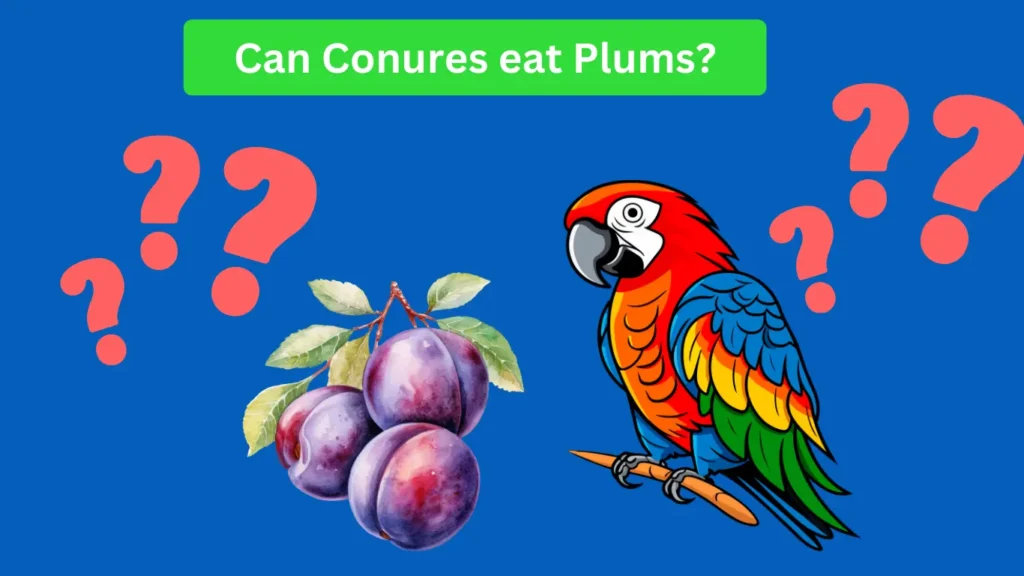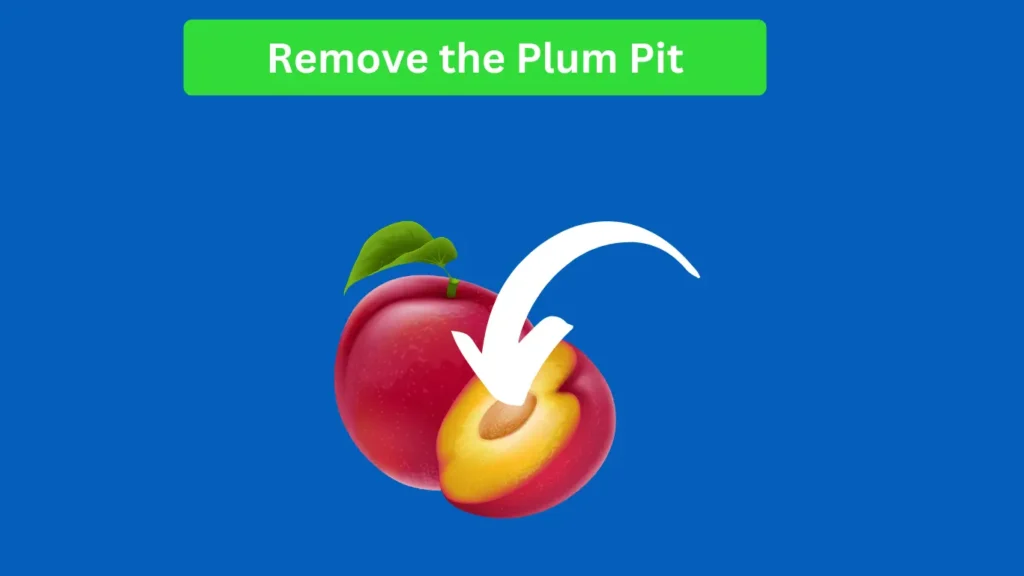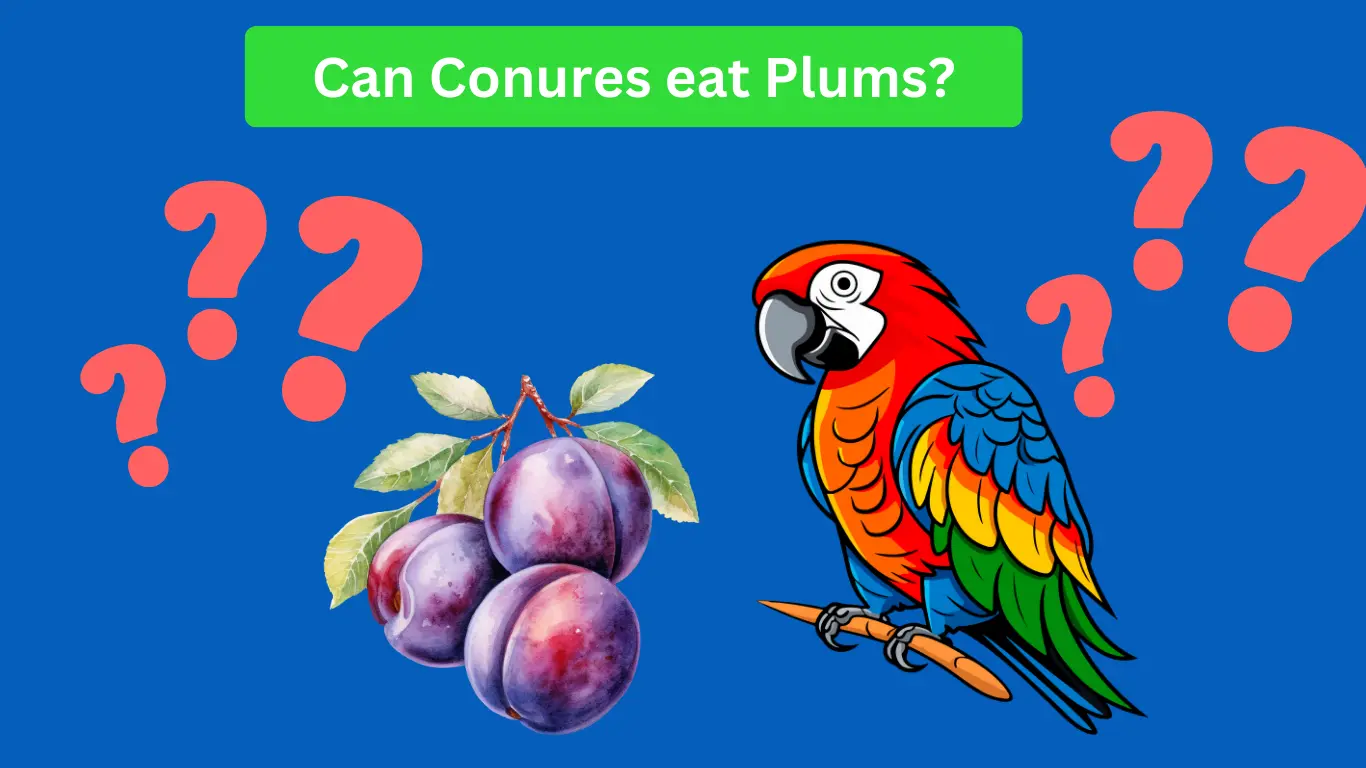Wondering can conures eat plums? Yes, parrots can eat plums but there are always some factors to consider about the things that parrots eat. Although the body of the fruit is healthy and non-hazardous to most parrots, the seeds of plum are poisonous substances that include cyanide. Always core the fruit before feeding the fruit to your parrot i.e. remove the pit.

Plums are sweet and succulent fruits that can be of different colors purple, red, or yellow. Not only, do they taste delicious but are good for your health in more ways than one can imagine. Perhaps you like plums in their natural and sweet juicy form or better in a dried form, as plums, or even better, in a dish, you probably didn’t know they are a reservoir of certain health benefits. In this guide, you will read about the nutritional value of plums, plums’ benefits for people’s health, and the reasons that will justify including plums in your diet.
Health Benefits of Plums for Your Conures
Plums are rich in several vitamins and minerals that can benefit your parrot, including:
Vitamin C: Enhances immunity and plays a role in the formation of tissue.
Vitamin A: Inexpensive and necessary for proper vision and overall health of a bird’s feathers.
Vitamin K: Required for normal blood clotting and bone formation as well as properly functioning.
Potassium: This is useful in the promotion of good muscle and nerve tone.
Boosts Immune Function
Plums are full of vitamin C hence the vitamin strengthens your parrot’s immune system. Parrots are known to easily fall sick and as such the immune status of any parrot has to be good enough to fight off infections.
Supports Digestive Health
parrots do not produce enzymes for metabolizing complex carbohydrates that are inherent in Plums and dietary fiber helps to soften the carbohydrates hence reducing conures constipation. However, fiber should be taken in moderation because taking too much fiber can lead to diarrhea.
Provides Hydration
Because plums are very juicy fruits, offer them to your parrot during hot weather or if the bird does not seem to be drinking enough water.
Improves Feather Health
The main benefits of vitamin A include keeping the skin and feathers in proper condition. Together with a moderate quantity of Vitamin A, plums can help maintain the shades and sturdiness of your pet parrot’s feathers. It lates the retina of the eyes and keeps feathers smooth and shiny.
How to Safely Serve Plums for Your Conures
Common food that you can feed your parrot is plums and while feeding your parrot, it is good that you feed it with a processed form of fruits because raw fruits also contain pits in this case plums as well thus if not well processed they can be a source of danger to your parrot. Follow these steps to make sure plums are safe and enjoyable for your feathered friend:
Wash the Plum Thoroughly
First, the plum should be washed under running water to avert dirty hands from coming near the fruit to touch it in the process of removal of pesticides or chemicals on the skin. It can be as simple as washing organic plums before giving them to your parrot, even though the fruit may be organic.
Remove the Pit

Although plums nowadays are free from cyanogenic glycoside compounds their pit or seed contains these are toxic to parrots. Make sure you have to remove the seed part from the plum cleanly. Never give a whole plum to your parrot with the pit in it.
Cut into Bite-Sized Pieces
Please don’t chop the plum into small pieces that your parrot cannot eat because they can choke. The size of the pieces should be reasonably sized to suit your bird’s size, and this boils down to whether the bird is a larger parrot or a small bird like a conure.
Offer the Plum in Moderation
Plums are sweet because of the natural sugars they contain and therefore they should be provided in small proportions only. It is enough if the person takes a couple of small portions of chocolate once or twice a week. Excess feeding of plums causes stomach upsets such as diarrhea among human consumers.
Potential Risks of Feeding Plums to Parrots
Choking Hazard
This is because if plums are not cut into suitable small parts parrots might choke. It is also important that any fruit provided is in the right size for your parrot.
Overconsumption and Diarrhea
Plums when taken to excess can upset the digestive system and lead to diarrhoea. May cause stomach upset and hence should be taken in small, limited, and controlled quantities.
Pesticides and Chemicals
Nonorganic plums may contain pesticide residues that are toxic to your parrot. This risk is eliminated by washing the plum thoroughly or by consuming organic plums.
Conclusion About Can conures eat plums?
Plums are a good source of vitamins and create an excellent source Of drink for parrots just in case they can be given occasionally. Rich in vitamins C, A, and K, and a lot of minerals, plums can boost the immune response, digestive health, and feather condition. However, always discard the pit, wash the fruit, and should not be given excessively because of the risks involved. If handled properly, plums will make one of the most delicious treats your parrot can ever enjoy.
FAQs
Can budgies eat plums?
Yes, plums are safe for budgies but always give them in moderation amounts which are safely digested by budgies.
Can every breed of parrots eat plums?
Yes, every parrot-like sun conure, green cheek conure, amazon, African gray parrot, budgies, and cockatiel parrot safely eats plums without pits.
Can baby conures eat plums?
Yes, baby parrots eat conure but introduce it slowly and in moderation amounts.
Related Posts
Table of Contents

Abubakr is a passionate parrot enthusiast based in Pakistan. He shares his life with his vibrant parrot, Peto, and is dedicated to understanding parrot nutrition, behavior, and training. Through his experiences with Peto, Abubakr aims to gain a deeper insight into the needs and personalities of parrots and to share his knowledge with fellow parrot lovers. With a focus on the nutrition of conures, Abubakr is excited to connect with like-minded individuals and learn from their experiences.
